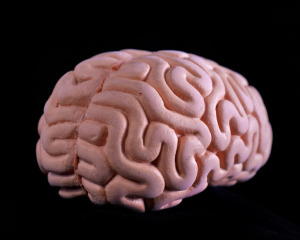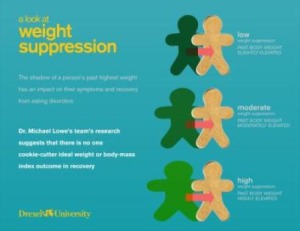Can a three-session intensive treatment program be the “motivational gateway” students need to commit to getting well?
Category: eating disorders
A slow, loving, ‘affective’ touch may be key to a healthy sense of self
Researchers found that a loving touch, characterized by a slow caress or stroke — often an instinctive mother/child gesture or between romantic partners — may boost the brain’s sense of body ownership and, in turn, play a part in creating and sustaining a healthy sense of self.
Eating disorders associated with reproductive health problems
Women with eating disorders are less likely to have children than others in the same age group. The likelihood for miscarriage was more than triple for binge-eating disorder (BED) sufferers and the likelihood of abortion more than double for bulimics than others in the same age group.
Food addiction a step closer to formal diagnostic status – or not?
Food addiction is not yet recognized as a mental disorder but certain obese individuals clearly display addictive-like behaviour towards food. To achieve a formal diagnostic status, ‘food addiction’ requires a stronger evidence base to support the claim that certain ingredients have addictive properties identical to addictive drugs of abuse.
Mobile tech and talk therapies strike at the moment binge eating urges do
Two new treatment methods under investigation aim to help people reduce behavior associated with binge-eating disorder, which this week was reported twice as common as bulimia. A smartphone app in development will track users’ individual patterns of behavior and alert them when they are at risk, among a comprehensive suite of other features. Another treatment is a new approach to small-group behavioral therapy to improve upon standard treatments for binge eating disorder.
Weight Stigma in Schools: Q&A with Dr. Rebecca M. Puhl
Weight-based bullying is the most common form of bullying in schools.
Scientists identify brain circuitry that triggers overeating
Researchers have pinpointed the precise cellular connections responsible for triggering binge eating. The finding lends insight into a cause for obesity and could lead to treatments for anorexia, bulimia nervosa, and binge eating disorder — the most prevalent eating disorder in the U.S.
For Students, Perils of Weight Bias, Anti-Obesity Programs
“When you talk about getting rid of childhood obesity, I think you want to get rid of me.”
Past weight loss an overlooked factor in disordered eating
The focus of eating disorder research has largely been on the state of patients’ thoughts, beliefs and emotions, with historically little focus on how current and past body weights contribute. A flurry of studies suggest that past body weight and relative weight loss should be taken into account.
Hunger pains
Binge-eating disorder, only recently designated as a diagnosis by the American Psychiatric Association in its official diagnostic manual of mental conditions, is associated with lifelong impairments comparable to those of bulimia nervosa, a long-established eating disorder with more dramatic symptoms.
Higher calorie diets increase weight gain, shorten hospital stays for teens with anorexia
Higher calorie diets produce twice the rate of weight gain compared to the lower calorie diets that currently are recommended for adolescents hospitalized with anorexia nervosa.





